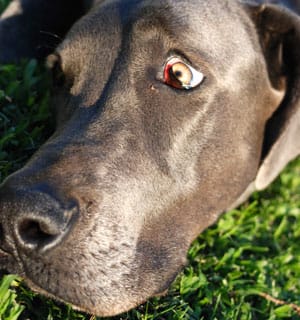By Sherry Weaver
Shock is a physiological phenomenon that results in cardiovascular collapse. Unfortunately, although its function is to defend vital organ systems in an emergency, a pet can die of the consequences of shock before he succumbs to the effects of his injuries. Gum color and capillary refill, mental status, heart rate and body temperature are all important reflections of the state of shock.
To evaluate the signs of shock, the pet’s cardiovascular system must be addressed. This is done by physical examination that you can do at the scene of the emergency. One of the basic signs of shock is a slower capillary refill time. To evaluate capillary refill time:
- Lift the side of the pet’s mouth to expose the gums
- Gently but firmly press one finger into the gums for one to two seconds (the pressure of your finger blocks blood circulation beneath your finer tip so that the gums appear pale) and remove your finger.
- Observe how long it takes for the blanched zone to regain a normal pink color or return to the same appearance of the gums around it (anything slower than two seconds is a sign of a problem).
Warning: The pet may be in early shock and have a normal gum color. Do not dismiss the severity of the pet’s condition even if he does not seem to be in shock at the time. Take him to the veterinarian to be certain that no treatment is necessary. It is most important to note the pet’s mental status. If the pet seems sluggish, slow to respond, or is lethargic and confused, visit a veterinarian immediately.
If the pet is unconscious, do not waste time examining her for more minor signs of shock. Seek veterinary attention immediately!
Shock can be caused by many different injuries and diseases, but there are common findings: weak, subdued or comatose, the pulse may be rapid and weak, body temperature may be below normal (but may also be normal or above normal.) Animals in shock may breathe rapidly but not take deep breaths. They may be panicked and agitated following an accident. Seek veterinary attention immediately!











